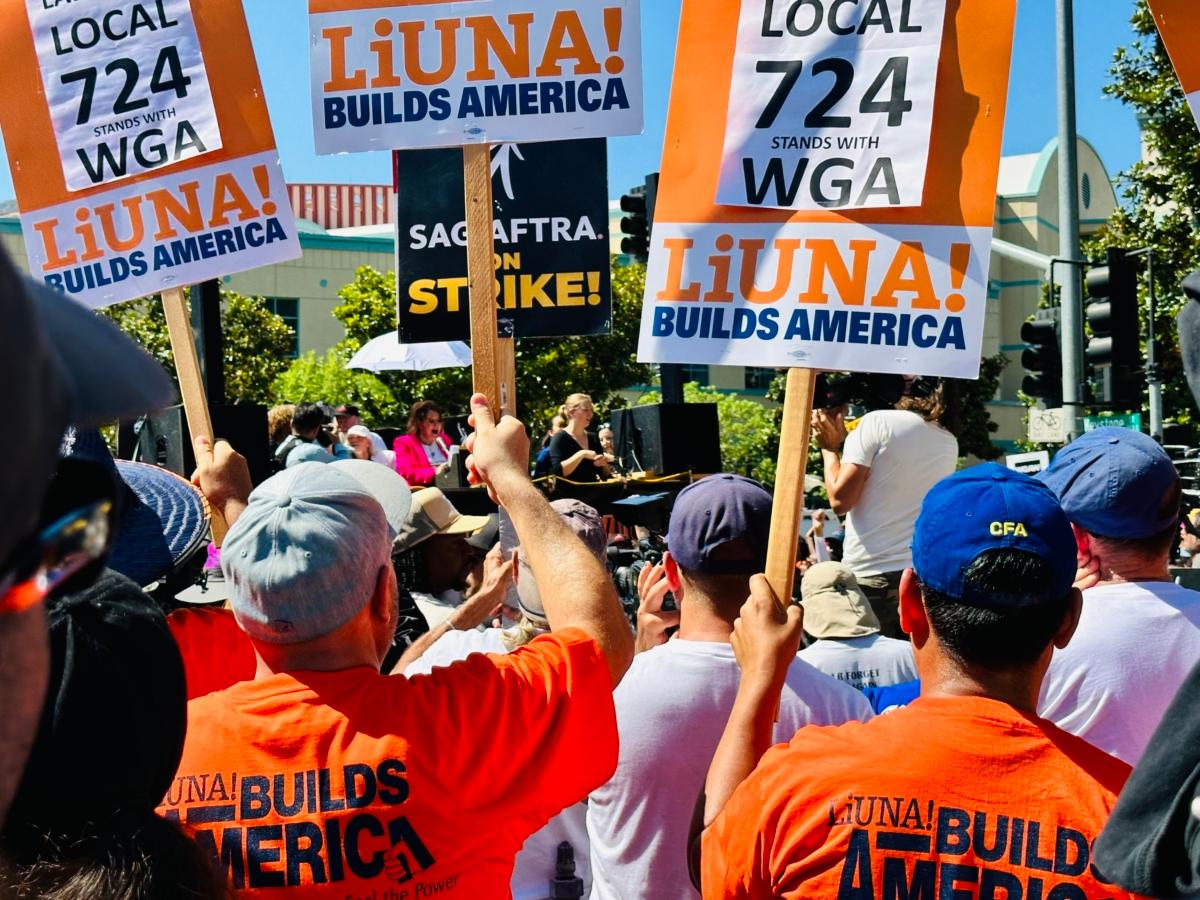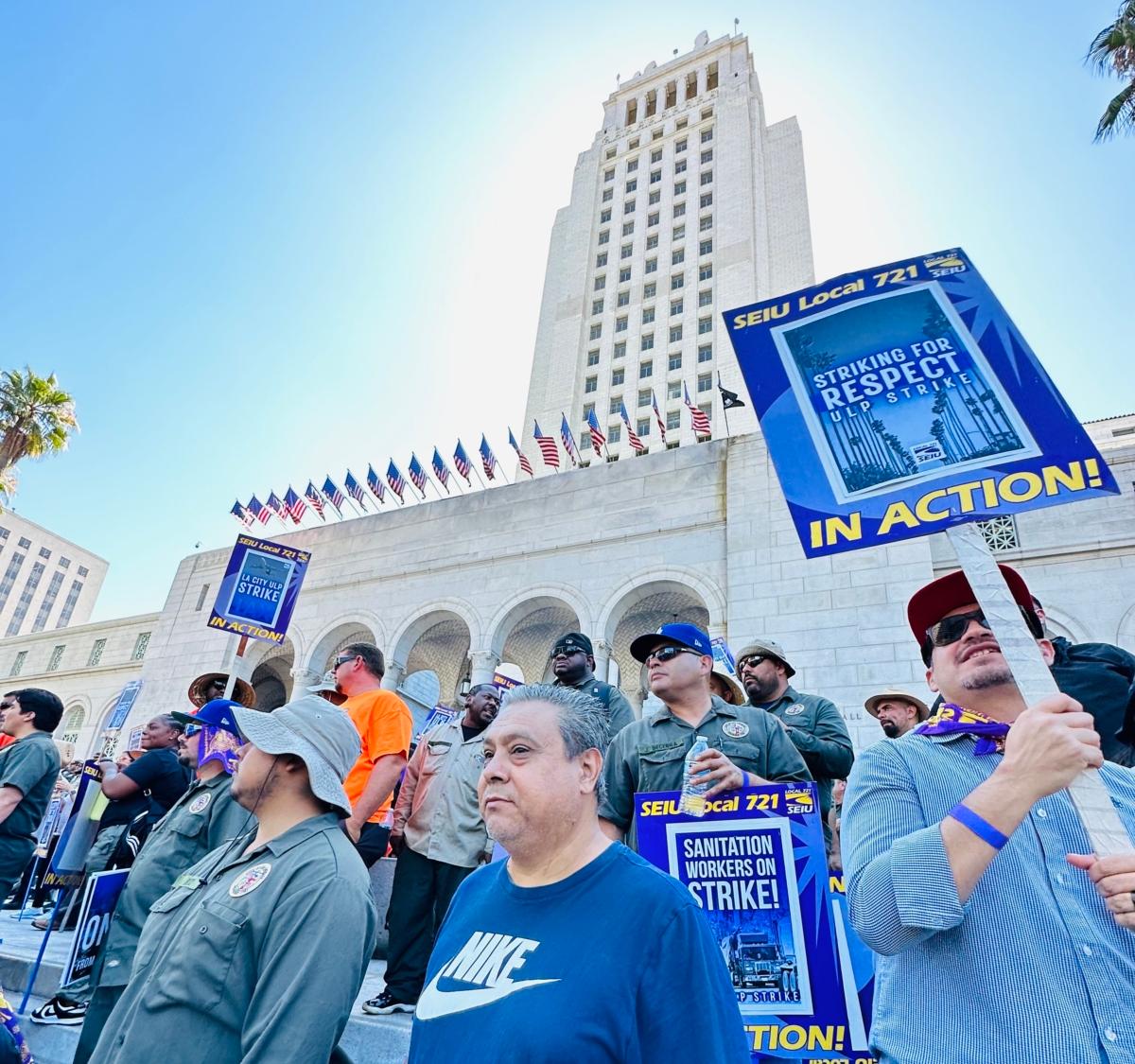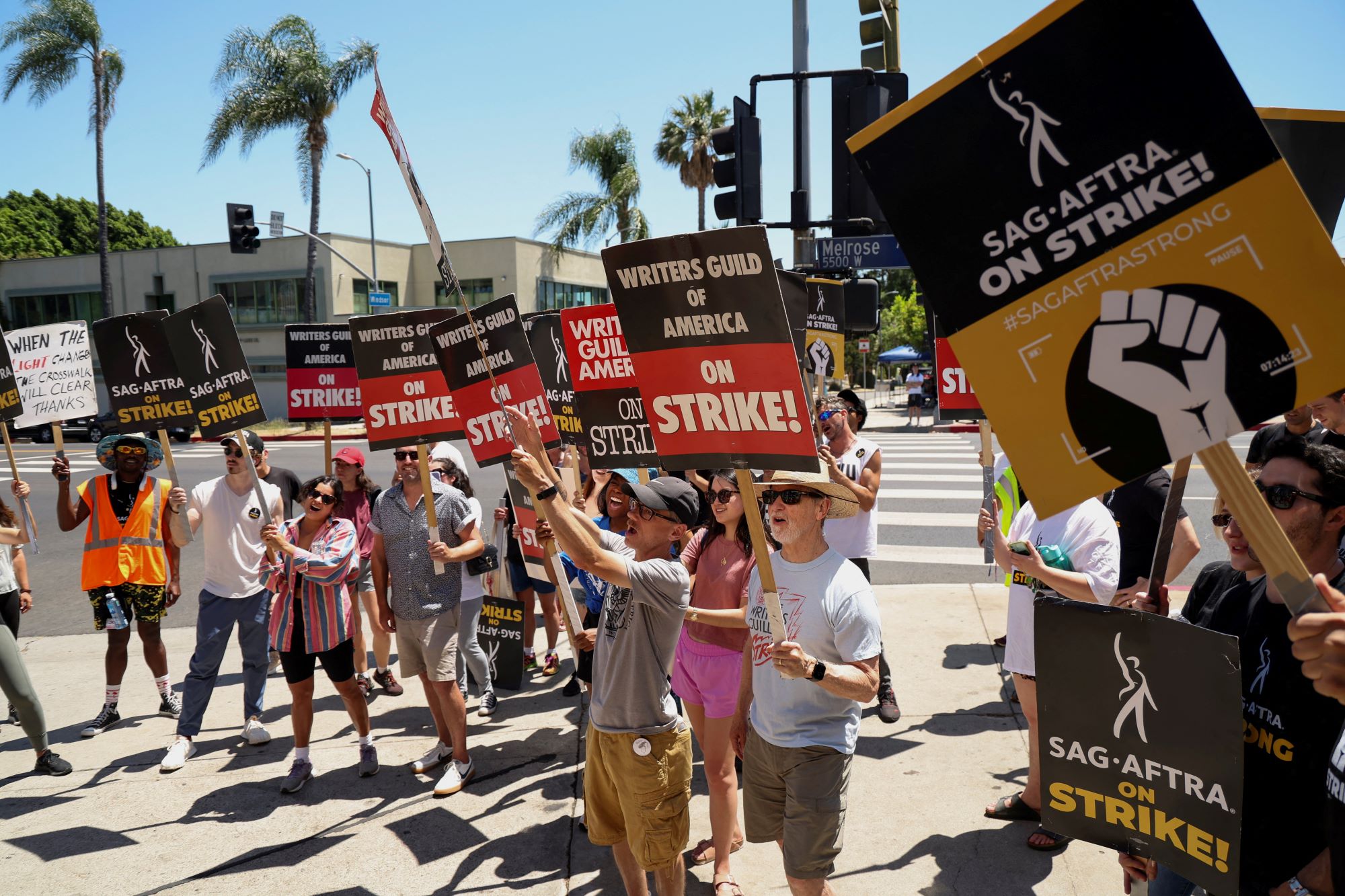Commentary
When I was state Sen. John Moorlach’s press secretary back in 2018, the California Latino Legislative Caucus honored Cheech Marin with a Latino Spirit Award for being a “positive role model.” He also came over to the Senate floor and was lionized by senators of both parties and every ethnic background, who took selfies with the star of “Up in Smoke” and other dope-themed movies and comedy albums.
Of course he’s the first half of Cheech and Chong, the pot-puffing comedy team. That substance earned even casual users long prison sentences until 2016, when voters legalized the whacky weed with Proposition 64. It’s still illegal according to federal law.
I bring this up because it shows how even legislators with immense power are dazed by Hollywood star power. So it’s not surprising, although no votes have been taken yet, they’re likely to pass Senate Bill (SB) 799, by Sen. Anthony Portantino (D-Burbank), which would grant unemployment benefits to Hollywood scriptwriters and actors locked out during a labor dispute. Even though they’re not really unemployed, but refusing to work.
Portantino represents “beautiful downtown Burbank,” as late night pioneer Johnny Carson used to joke about the NBC’s Burbank Studios, where his show was taped. The bill’s other two introducers are Sen. Maria Elena Durazo (D-Los Angeles), and Assemblymember Chris Holden (D-Pasadena). SB 799 definitely is intended to help their local industry.
SB 799 reads, “This bill would restore eligibility after the first 2 weeks for an employee who left work because of a trade dispute. The bill would codify specified case law that holds that employees who left work due to a lockout by the employer, even if it was in anticipation of a trade dispute, are eligible for benefits.” Currently, benefits are $450 a week for 26 weeks maximum.
That is, it would apply not just to Tinseltown employees, but strikers in any industry. What a benefit this will be to organized labor, already the state’s most powerful political force.

Hollywood writers and actors hold a union rally outside Disney Studios in Burbank, Calif., on Aug. 22, 2023. The “National Day of Solidarity” rally drew an estimated 2,000 people supporting the ongoing strikes against major studios. (Jill McLaughlin/The Epoch Times)
Lockouts and Strikes
A “
lockout” is where, when there’s no labor contract, the employer—in this case, Hollywood studios—refuses to let the workers go on the job. It’s different from a strike, where the workers themselves choose not to work. But commonly, as in the Hollywood case, lockouts also are called strikes.
The whole point of lockouts and strikes is to damage both sides until they relent and come to an agreement. I grew up near Detroit, where every couple of years the United Auto Workers union would strike one of the Big Three automakers, GM, Ford, or Chrysler, until an agreement was made. The agreement then would be adapted by the other two companies. It always was said a good agreement was one both sides didn’t like.
If SB 799 becomes law, one side—labor—greatly will be favored, and strikes will proliferate. Few of us are bothered much by the Hollywood lockouts, especially after all the P.C. schlock they’ve been churning out in recent years.
But strikes or lockouts in other industries, such as hotels and factories, could hit the private sector hard. And strikes or lockouts by public-sector union workers would reduce the services we all pay for through already-high taxes. Union power also would grow.
Then there’s the unemployment insurance system itself. All workers pay into it. With more “workers” (who aren’t working) drawing that $450 a week during a lockdown, the unemployment tax will have to rise, or benefits be cut, for everyone else.
Then there’s a new report from Aug. 24 by State Auditor Grant Parks, which found—during the spike in claims during COVID-19—the Employment Development Department (EDD) “did not block addresses used to file unusually high numbers of claims, and it removed a safeguard preventing payment to individuals who had unconfirmed identities. These inadequate internal controls did not prevent potential fraud during fiscal years 2019–20 and 2020–21 and allowed the payments of potentially fraudulent claims, estimated at tens of billions of dollars, most of which have yet to be recovered.”
Already a troubled agency, the EDD would be tasked with another onrush of claims by workers who refuse to work.
Hollywood Tax Subsidies
The Legislature also is working to pass
Assembly Bill 132, by the Committee on the Budget, headed by Assemblyman Phil Ting (D-San Francisco). It would extend, from fiscal 2025-26 through 2030-21, annual film tax subsidies of $330 million a year.
The City on the Bay also is a major film center. In May, Film SF, part of the city government, reported, “Every year, productions spend millions of dollars locally on hotel nights, car rentals, catering, hardware, lumber, office supplies, wardrobe, props and equipment rentals.”
The tax subsidies of nearly $1 billion over three years are paid for by the taxes of other California residents and businesses.

Thousands of unionized Los Angeles city workers walked off their jobs for a one-day strike in Los Angeles on Aug. 8, 2023. (Jill McLaughlin/The Epoch Times)
Follow the Money
To cite just one politician, according to Follow the Money, Mr. Portantino’s
campaign receipts include $24,700 from Warner Bros., $19,978 from Walt Disney, $15,600 from Paramount Pictures Group, and $13,000 from Sony Pictures Entertainment.
That explains how he would back tax subsidies. But wouldn’t movie studio support of him prevent his backing the labor unions in their lockout battle? Except look at these union contributions: $69,300 from the California Faculty Association, $67,300 from SEIU California State Council, $50,000 from the California State Council of Laborers, $45,865 from the California Professional Firefighters Association, $45,650 from the Professional Engineers in California, $43,800 from the California State Association of Electrical Workers, $40,900 from the Plumbers and Pipefitters Local 250, and $40,000 from the California Labor Federation AFL-CIO. And many more.
Mr. Portantino, by the way, in 2024 is running for the U.S. Congress for the 25th District, which Rep. Adam Schiff is leaving to run for U.S. Senate.
Conclusion: Your Money Up in Smoke
SB 799 also is, in Sacramento nomenclature, a “gut and amend” atrocity. A previous version of the bill, concerning prisons, was totally “gutted” and “amended” on Aug. 22 to the current wording. That means there will be less time for the bill to be reviewed. Read the
text to see how this is done, with the original wording crossed out in red, and the new text inserted in blue italics.
It amazed me how Mr. Moorlach consciously read all the bills, more than 2,000, under consideration every year. Until voters, possibly under the influence of Cheech and Chong’s doobies, jettisoned him from office in Nov. 2020. Because few legislators are that diligent, you can see why the state is so dysfunctional and expensive.
















